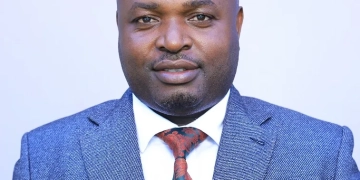
KAMPALA, UGANDA – Uganda’s communications regulator has unveiled stringent guidelines to curb misinformation and indecent content on social media, sparking concerns among media executives and raising questions about the impact on the country’s burgeoning media sector.
The Uganda Communications Commission (UCC) will now hold media employers accountable for their employees’ social media actions, in a bid to safeguard society without infringing on personal freedoms. This move is part of a broader effort to regulate Uganda’s media landscape and promote responsible social influence.
UCC Executive Director Nyombi Thembo explained that some media personalities have gained significant social influence through their industry roles, often using this influence negatively. “If you have gained fame through your work and now want to earn from your influence, go home and post. The problem arises when you use that enormous influence negatively while hiding behind a brand—that’s what we are going to fight,” Thembo stated.
Thembo emphasized that the commission’s objective is to address these issues by making employers responsible for their employees’ conduct. “The line that separates freedom from regulation is responsibility. A responsible regulator won’t infringe on individual or organizational rights, as our laws and constitution clearly distinguish between the two.”
Under the new guidelines, media firms will be liable for their employees’ social media actions, and music videos and lyrics must meet Minimum Broadcasting Standards. The UCC has also partnered with Facebook, TikTok, and Instagram to moderate online content.
UCC Head of Multimedia Services, Medi Kaggwa, noted that the commission collaborates with digital platforms to moderate online content. “We work with Facebook, TikTok, Instagram, and can lodge complaints if offensive content is posted, and they assist in taking down such material,” Kaggwa said.
Kaggwa added that the commission is revising its standards to guide creatives on protecting the public from offensive content. “It is a legal requirement that all videos and plays consumed by the public go through classification. This is not to stifle creativity, but to advise on who is suitable to consume the content,” he emphasized.
However, renowned media proprietor Francis Babu criticized the move, arguing that holding employers accountable for employees’ personal actions is unjust. “A proprietor does not have the capacity to control the minds of their workers. You can implement laws and regulations, but if a worker refuses to follow them, holding the employer responsible is unfortunate,” Babu commented.
Babu continued, “You cannot control someone’s cellphone, tablet, or computer. The best I can do as an employer is to terminate their contract, but holding me liable is totally unfair.”
Industry analysts warn that the regulations may increase operational costs for media firms, potentially stifling innovation.
Uganda’s move reflects a broader trend of governments worldwide tightening social media regulations. International media companies operating in Uganda must now navigate these new guidelines to avoid penalties.











Discussion about this post